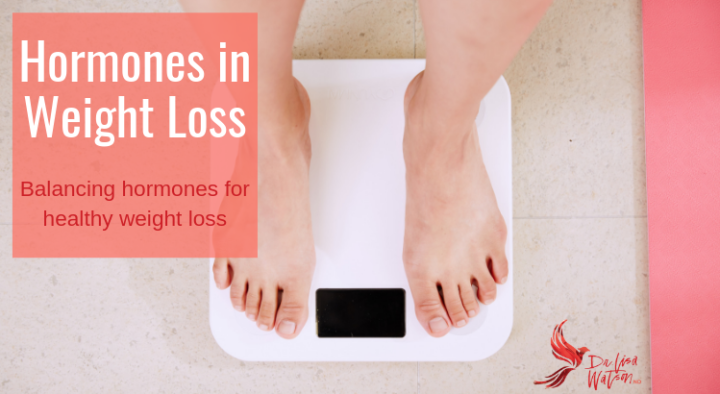

Higher insulin levels signal the body to store more fat, especially around the abdominal area. This causes blood sugar levels to stay high (up to 7 times higher than normal) in the bloodstream, affecting your metabolism because it inhibits the body’s ability to metabolize fats. What happens is that the cells themselves become resistant to insulin and can’t utilize it like they should. Insulin also regulates blood sugar levels. Its main job is to act as a key to unlock the cells so that glucose (blood sugar) can enter and give us energy from our food. Insulin is a hormone that is made by the pancreas and it’s activated whenever we eat. Insulin Resistance is a condition that affects millions of Americans and many don’t even know that they have it. But first, let’s discuss the hormone issues.

In addition to circumstances where hormones affect weight loss, there are other factors that can impede weight loss such as Candida (an overgrowth of yeast in the gut) and sleep deprivation. Common Hormonal Imbalances That Affect Weight Loss This not only leads to feelings of shame, but also helplessness and can be quite demoralizing. Unfortunately, many of them have sought help from their doctor, only to be told that they just need to eat less and exercise more, period. We frequently get phone calls from patients who are desperate for help because the pounds keep packing on no matter what they do. Hormone imbalances and other deficiencies can very likely be the reason. Not only that, but these same issues can actually be the cause of the weight gain in the first place, in addition to poor diet and lack of exercise.

What many people don’t realize is that there can be many underlying health issues which impede weight loss attempts. Sometimes it can be frustrating when results are not forthcoming, which can end by giving up all together. Plenty of people attempt various diets and exercise programs with the intention of taking off any excess weight. In fact, some hormonal imbalances can make it down right impossible to lose weight! If you are putting weight on easily and having a hard time taking it off, you should know that hormonal imbalances affect weight-loss and weight gain and could be part of the problem or maybe even the whole problem. Why am I putting on Weight? And WHY is it so HARD to take it off? Whole-Body Wellness for Men: It’s All About Balance.Do Hormonal Imbalances Affect Weight Loss?.Ghrelin release can be manipulated by changing current eating habits and ignoring hunger pains from previous meal times. Ghrelin is responsible for hunger pangs that occur at certain times of the day, as the brain reinforces past feeding decisions to create a cycle of eating. Cortisol causes a retention of body fat, increased inflammation, and increased levels of muscle loss. This anticipation of stress revolves around an internal clock, as cortisol is highest during the morning periods, and wanes throughout the day. CortisolĬortisol is often called the stress hormone, as it increases with both perceived stress and cyclical anticipation of stress. Regaining fat up to the current body fat set point, or manipulating carbohydrate can reduce leptin levels and eliminate this stress on the body. Leptin signaling causes this increased stress.

A good example of the effect leptin has on the body is the higher overall stress that occurs when a dieter reaches extremely low levels of body fat. Leptin is a hormone that governs the current body fat set point, and is increased or decreased based on the current level of body fat, incoming calories, carbohydrate intake, and the reward stimulating pathways within the brain. A good basis for the understanding of hormonal influence on metabolism and weight loss begins with the hormones leptin, cortisol, and ghrelin. Understanding a few of these hormonal processes can greatly contribute to any plan for weight management in Beverly Hills. While some of these hormones are generally in direct proportion to outside factors, such as leptin, some are simply present because of mainly uncontrollable causes, such as estrogen, while still others act on the body because of a combination of external and internal stimuli, like cortisol.


 0 kommentar(er)
0 kommentar(er)
